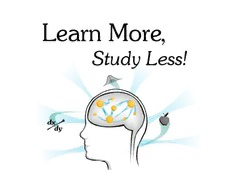Table Of Content“If you understand something in only one way, then you don't
really understand it at all. The secret of what anything means to us
depends on how we've connected it to all other things we know. Well-
connected representations let you turn ideas around in your mind, to
envision things from many perspectives until you find one that works
for you. And that's what we mean by thinking!”
-Marvin Minsky
Copyright 2010, Scott Young
All Rights Reserved
Table of Contents
Introduction
7
My Story
How to Use This Book
Part I: The Holistic Learning Strategy
17
Constructs
Models
Highways
The Sequence of Holistic Learning 37
Acquire
Understand
Explore
Debug
Apply
Test
Pinpointing Your Weaknesses in the Sequence
Information Structures 69
Arbitrary
Opinion
Process
Concrete
Abstract
How to Use the Five Categories
Why Your Classes Are Boring 86
Goals for Learning 88
Part II: Holistic Learning Techniques
91
Acquiring Information 95
Speed Reading
Active Reading
Flow-Based Notetaking
Linking Ideas 113
Metaphor
Visceralization
Diagraming
Concept Diagrams
Flow Diagrams
Image Diagrams
Handling the Arbitrary 140
The Link Method
Steps for Using the Link Method
Challenges With the Link Method
The Peg Method
Information Compression
Mnemonics
Picture Linking
Notes Compression
Extending Ideas 168
Practical Usage
Model Debugging
Project-Based Learning
Review of Holistic Learning Techniques 182
Part III: Beyond Holistic Learning
184
The Productive Student 185
Manage Your Energy
Don't “Study”
Nuke Procrastination
Batching
Be Organized
Educate Yourself 201
Structuring Learning Habits
Overcoming the Frustration Barrier
Setting Learning Goals
Summary & Self-Education Resources
Part IV: Summary & Quick Guide
213
Getting Started
Starting a Mind Challenge
Set Up a Better Study Routine
Productivity Resources
Recap of Major Concepts
Special Thanks 227
About the Author 228
Introduction
What makes somebody smart?
Is it raw brainpower? Accumulated knowledge? Is it just academic learning or
does it also include your experiences, people skills and intuition?
Intelligence is difficult to define. Although IQ tests and various exams try to
measure it, deciding what makes somebody smart is hard to do. I prefer to avoid
universal definitions and focus on a more practical one:
Being smart means being able to learn quickly, remember a large amount of
information and be able to sort that information in a way that achieves your goals.
This is a much more personal definition. Learning goals can differ from person to
person. You might just want to get A’s in all your courses. John might want to
become a master at computer programming. Susan might want to retain more from
7
the books she reads in her spare time. Another person might want to be able to apply
concepts to business situations.
It’s up to you to decide what being smart means.
This book isn’t about reaching an arbitrary definition of intelligence. Rather, it’s
about giving you a strategy for learning. From this strategy, called holistic learning, I’ll
provide a set of different tools to put that theory into practice.
Some of these tools won’t fit your learning style or goals. That’s fine. My hopes is
to provide a large assortment of tools that, with the backing of the holistic learning
strategy, you can use to tailor your own approach. With practice many of these
techniques can become powerful weapons in your learning arsenal.
This book has two major goals. First, the holistic learning strategy should give you
a model for how to learn better. Without an easily understandable theory of learning, it
is difficult to make improvements. By seeing the holistic learning strategy you have a
basis for identifying your weaknesses and improving the way you learn.
The second objective of this book is to provide a variety of learning techniques.
Throughout the book I’ll explain what these techniques are and how they fit within the
holistic learning strategy. Included with this book are exercise printouts so you can
8
practice these methods.
I wish you the best of luck in all your learning efforts and hope you enjoy the book.
It took a great deal of effort, tweaking and experimentation to write. Hopefully that
effort has been well invested and you can improve the way you think.
9
My Story
I’ve always been able to learn quickly. Getting A’s and A+’s with little studying
before tests wasn’t a challenge for me throughout school. While in University, I’ve
maintained an average that sits between A and A+. Despite this, I don’t spend more
than the average person on homework. In fact, I might even spend less.
Once, I wrote an inter-provincial test (I’m Canadian) for chemistry. The only
problem: I didn’t know I was supposed to write the test until a pencil and bubble sheet
were sitting in front of me. On top of this, the test was on material I wasn’t familiar
with and topics that were never covered in my class. I was given an hour and a half to
write the exam. I left after forty minutes because I wanted to eat lunch.
I won first place and received a check for $400.
Self-learning has also occupied my time. I’ve taught myself several programming
languages, business and writing skills and my bookshelf has hundreds of books I’ve read
10

